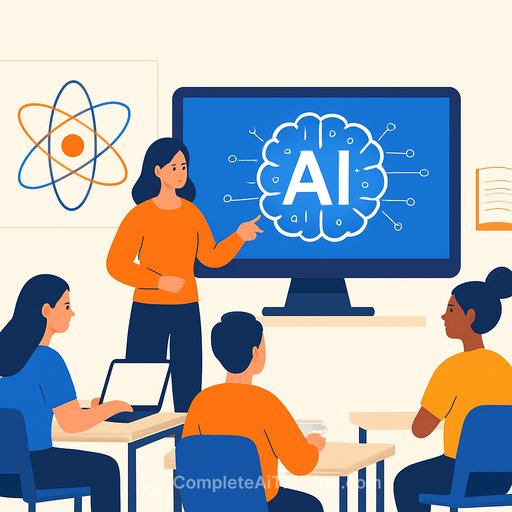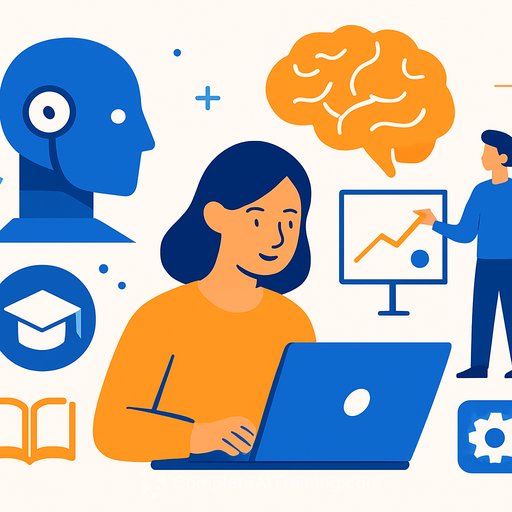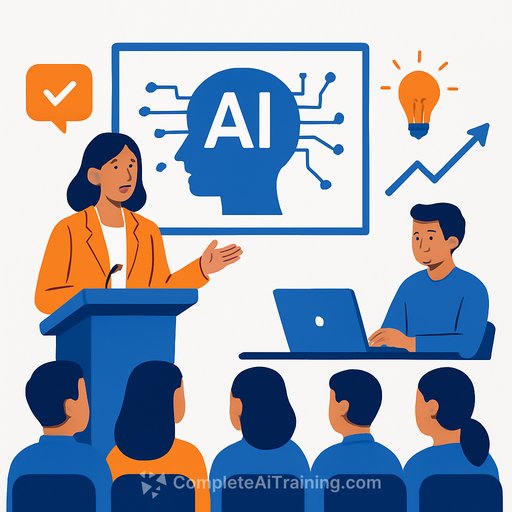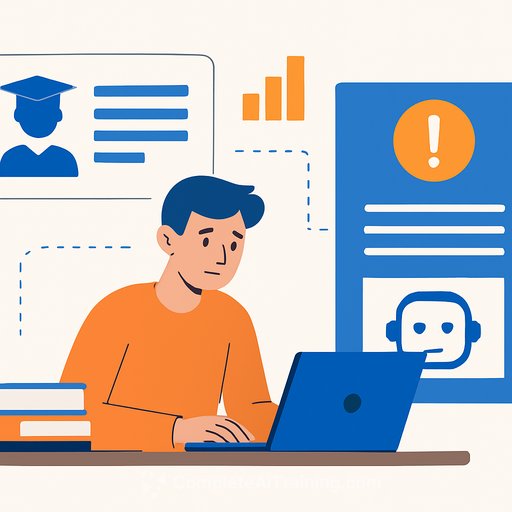The Role of Generative AI Tools in Case-Based Learning and Teaching Evaluation of Medical Biochemistry
Abstract
Background
Medical biochemistry is a core subject in medical education with a growing and complex knowledge base. Traditional teaching methods often struggle to meet students’ needs for deep comprehension and personalized learning. Students frequently feel overwhelmed by the vast biochemical concepts, reactions, and molecular structures involved.
Objective
This study investigates the use of generative AI tools as teaching assistants in medical biochemistry, focusing on their application in Case-Based Learning (CBL), an area where such tools are not yet widely adopted.
Methods
A comparative study was conducted with two groups: a control group (40 students) and an experimental group (39 students) utilizing AI tools during CBL. Student performance was analyzed alongside teacher and AI evaluations of assignments. A questionnaire captured student feedback on the AI’s impact on their learning experience.
Results
The experimental group completed case assignments faster (2.6 hours vs. 5.5 hours) and scored higher on exams (77.3 ± 4.3 vs. 66.5 ± 5.4). AI grading aligned closely with teachers’ evaluations, confirming its reliability. Students valued AI for acquiring basic knowledge but noted limitations in complex clinical reasoning and fostering innovation. Concerns included reduced teacher-student interaction and standardized AI outputs leading to more uniform learning. Despite this, acceptance of AI tools grew significantly after the trial.
Conclusion
Generative AI tools improved learning efficiency and exam performance in medical biochemistry CBL. While they have limitations in promoting innovative thinking and interaction, students became more open to their use. AI should complement, not replace, traditional teaching to balance efficiency with creativity.
Introduction
Medical education in China is evolving quickly to meet societal needs. Programs like the Excellence in Physician Education Program encourage integration of basic medical courses. With basic medical training lasting 2.5-3 years—shorter than in Europe or the US—students must absorb solid knowledge efficiently to succeed in exams and future practice.
The rapid growth of medical knowledge challenges students to learn more in less time. Artificial intelligence is increasingly used in medical education, reshaping traditional models. Generative AI (GAI) automatically creates content and has been adopted in various teaching settings. Its continuous updates offer new opportunities and challenges for educators.
Methods
Participant Recruitment and Study Design
We randomly selected 89 students from two clinical medicine classes in 2023. The classes were balanced by exam scores, gender, and ethnicity to ensure comparable groups.
Selection of AI Teaching Tools
Due to restrictions on ChatGPT in China, this study used Kimi Chat 2.0, a popular domestic generative AI tool.
Case-Based Learning (CBL)
The clinical case used involved a liver cancer patient’s diagnosis, treatment, and recovery, covering biochemistry and cell biology topics. The case was developed by faculty from the affiliated hospital and biochemistry teaching team.
Teaching Evaluation
Evaluation included homework and final exams. Homework was graded by both teachers and AI tools to compare consistency.
Questionnaire and Data Analysis
A questionnaire assessed positive and negative impacts of AI tools on learning. Positive feedback had 12 questions across four levels, while negative feedback included six questions across three levels.
Results
Consistency Between AI and Teacher Evaluations
Homework scores showed no significant difference between AI and teacher evaluations in the control group. The experimental group’s scores were significantly higher than the control group’s, indicating AI’s positive impact.
AI Provides More Detailed Answers
Students using AI gave more comprehensive and detailed responses to clinical questions compared to the control group.
AI Reduces Study Time and Improves Test Scores
AI tools helped students quickly identify relevant information, cutting down study time and boosting exam performance.
Advantages in Knowledge Expansion
Most students found AI tools easy to use and helpful for expanding their clinical case knowledge.
Limitations of AI Tools
Despite benefits, AI tools have shortcomings. They may reduce teacher-student interaction and promote standardized answers, which can limit creative thinking and deeper clinical reasoning.
Student Attitudes Toward AI Use
After the experiment, students showed increased willingness to use AI tools in future learning, reflecting growing acceptance despite some concerns.
Discussion
This study examined Kimi Chat 2.0’s role in medical biochemistry case studies. AI-assisted students produced more thorough answers and performed better in assessments. However, AI tools cannot fully replace the nuanced judgment and mentoring that teachers provide. Balancing AI assistance with traditional teaching remains crucial.
Conclusion
Generative AI tools enhance learning efficiency and exam results in medical biochemistry CBL. Their use introduces some challenges, such as reduced interaction and less encouragement of innovative thought. For best results, AI should be integrated thoughtfully as a supplement to established teaching methods rather than as a replacement.
Data Availability
Data from this study can be requested from the corresponding author.
Acknowledgements
Thanks to colleagues from Jincheng College of Chengdu and Sichuan University for manuscript revision and study support.
Funding
This work was funded by the National First-class Undergraduate Course Construction Project, Chengdu Medical College Teaching Reform Research Foundation, and Sichuan Province Higher Education Talent Training Quality and Teaching Reform Project (2024).
Ethics Declarations
Participation was voluntary with confidentiality maintained. The study was approved by the Teaching Research Ethics Committee of Chengdu Medical College following the Helsinki Declaration.
Competing Interests
The authors declare no competing interests.
Your membership also unlocks:






